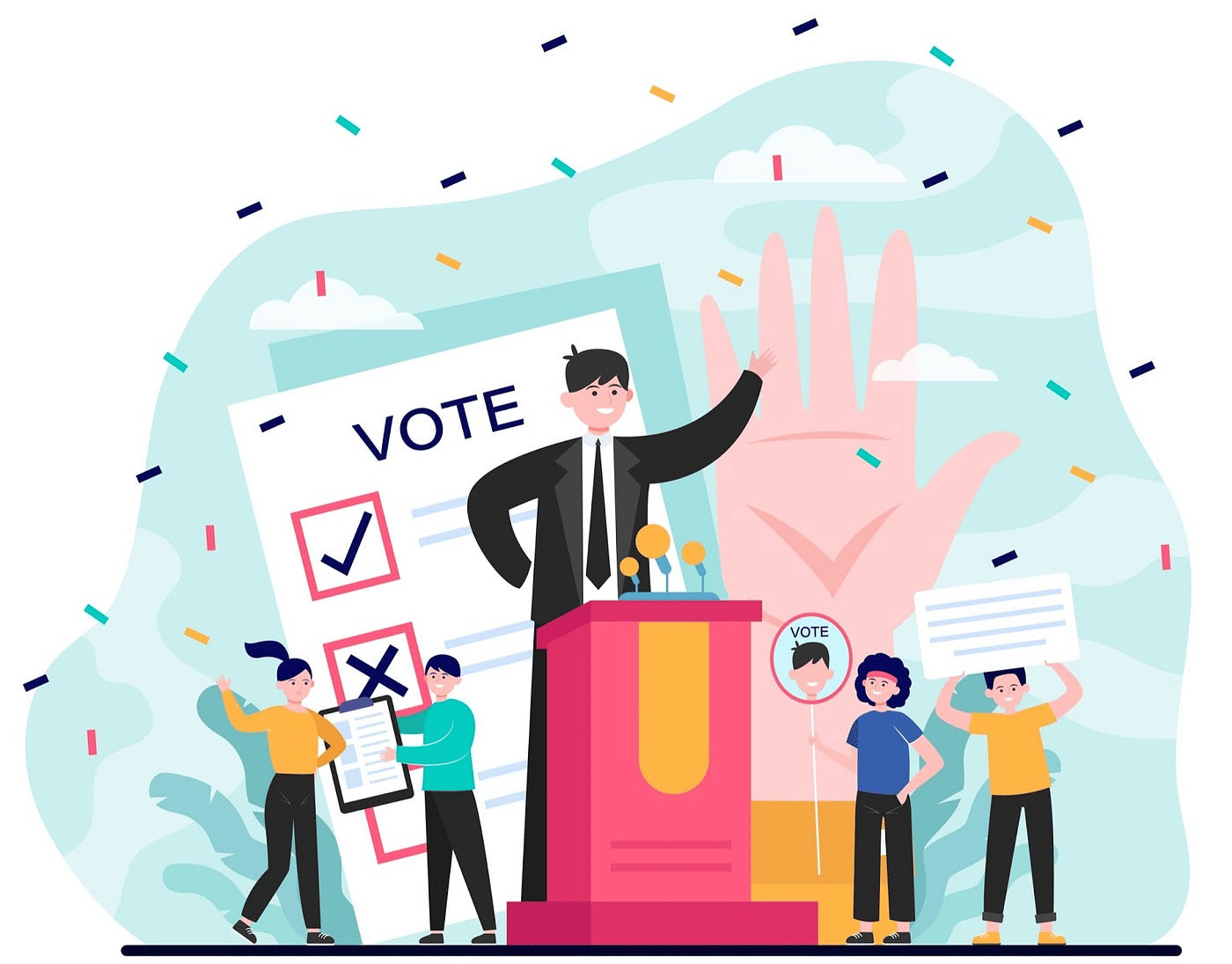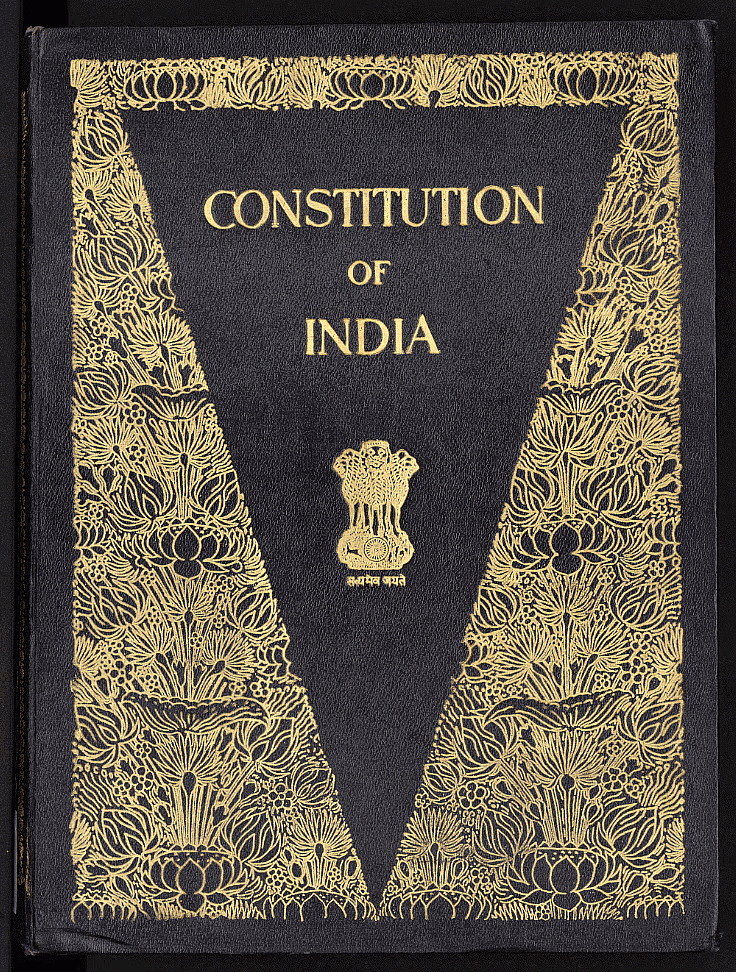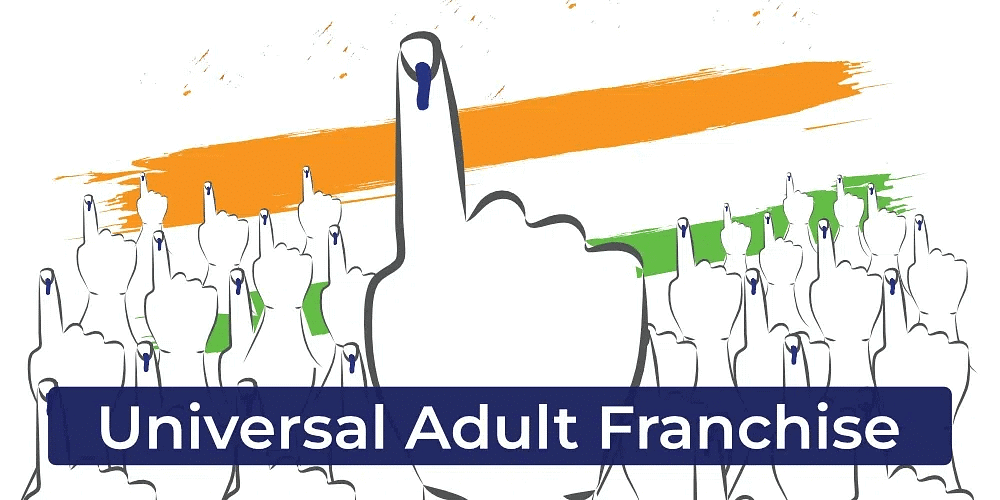The Indian Constitution Class 8 Worksheet Civics Chapter 1
| Table of contents |

|
| Multiple Choice Questions (MCQs) |

|
| Fill in the Blanks |

|
| True/False |

|
| Very Short Answer Questions |

|
Multiple Choice Questions (MCQs)
Q1: What defines the set of rules to govern the country?
A) Preamble
B) Sovereignty
C) Constitution
D) None of these
Q2: What is the purpose of a constitution in a democracy?
A) To establish guidelines for decision-making by political leaders.
B) To ensure fairness and protection for all individuals and groups.
C) To prevent the erosion of citizen rights and freedoms.
D) All of the above.

Q3: Which key feature of the Indian Constitution allows for the presence of multiple levels of government within the country?
A) Democracy
B) Federalism
C) Autocracy
D) Monarchy
Q4: What are the Fundamental Rights provided by the Constitution of India?
A) Right to Equality
B) Right to Freedom
C) Right against Exploitation
D) All of the above
Q5: Which one of the following is not a Fundamental Right under the Indian Constitution?
A) Right to Vote
B) Right to Equality
C) Right to Freedom of Religion
D) Cultural and Educational Rights
Fill in the Blanks
Q1: The Indian Constitution ensures that no citizen can face discrimination based on religion, race, caste, gender, or ___________.
Q2: The Constitution of India was adopted on ___________.
Q3: Dr. Ambedkar was the Chairman of the ___________ drafting committee.
Q4: The Indian Constitution declares India to be a ___________, democratic republic.
Q5: ___________ is guaranteed by the Constitution of India to allow citizens to elect their representatives.
True/False
Q1: The Indian Constitution was drafted by a committee led by Dr. Ambedkar over a period of three years.
Q2: The Constitution only provides for the separation of powers among the judiciary, the executive, and the legislature.
Q3: The right to privacy is explicitly mentioned as a Fundamental Right in the Indian Constitution.
Q4: The Indian Constitution was written in a single language.
Q5: The Indian Constitution can be amended to address new political concerns.
Very Short Answer Questions
Q1: What do you understand by monarchy?
Q2: What is a "State"?
Q3: What is universal adult franchise?
Q4: Explain Right to Freedom of Religion.
Q5: Define the term constitution.
Q6: Mention the key features of the Indian Constitution.
Q7: What are the functions of the three main organs of the government?
Q8: Which Fundamental Rights will the following situations violate?
(i) If a 13-year old child is working in a factory manufacturing carpets.
(ii) If a politician in one state decides to not allow labourers from other states to work in his state.
(iii) If a group of people are not given permission to open a Telugu-medium school in Kerala.
(iv) If the government decides not to promote an officer of the armed forces for being a woman.
Q9: In each of the following situations, identify the minority. Write one reason why you think it is important to respect the views of the minority in each of these situations.
(i) In a school with 30 teachers, 20 of them are male.
(ii) In a city, 5 per cent of the population are Buddhists.
(iii) In a factory mess for all employees, 80 per cent are vegetarians.
(iv) In a class of 50 students, 40 belong to more well-off families.
Q10: What is the importance of constitution?
You can access the solutions to this worksheet here.
|
69 videos|431 docs|46 tests
|
FAQs on The Indian Constitution Class 8 Worksheet Civics Chapter 1
| 1. What is the significance of the Indian Constitution for the citizens of India? |  |
| 2. How many fundamental rights are guaranteed by the Indian Constitution? |  |
| 3. What are the major features of the Indian Constitution? |  |
| 4. How does the Indian Constitution ensure the separation of powers? |  |
| 5. What is the role of the Preamble in the Indian Constitution? |  |
















